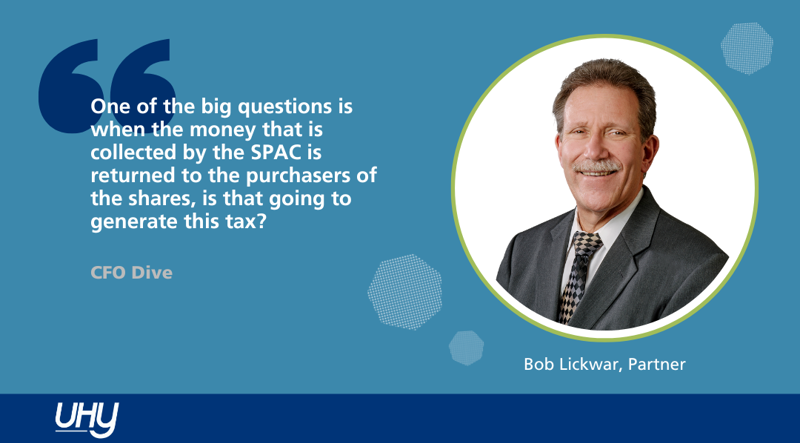Despite the implementation of the new 1% stock repurchase excise tax officially in effect, guidance released by the IRS notably did not mention if Special Purpose Acquisition Companies (SPACs) would be subject to the new tax if they chose to redeem shares rather than complete their transaction.
According to partner Bob Lickwar, who commented in advance of the guidance's release, "One of the big questions is when the money that is collected by the SPAC is returned to the purchasers of the shares, is that going to generate this tax? It seems a little unfair to me because it’s not a normal buyback transaction. You’re really just returning money at some point for an unsuccessful offering."
He remains hopeful the final regulations will include an exemption for SPAC transactions; meanwhile, instructions are clear for more straightforward and traditional share redemptions. It's understood a 1% tax will be imposed on stock buybacks in excess of $1 million in a tax year unless the company pledges to contribute the same amount to an employee stock ownership or pension plan. Lickwar added the new tax law allows a company to net newly issued stock during the period against redemptions. If the number is less than $1 million, the tax does not apply; if it's over $1 million, companies will owe the tax.
For now, Lickwar recommends caution. "Deals will need to be structured, if possible, within the parameters of the guidance. If a transaction with unclear consequences can be delayed... CFOs and practitioners may want to wait for final guidance," he said.
Read the full article published by CFO Dive.
Have a question?
Fill out the form to speak with Bob
By submitting this form, you agree to be contacted by UHY.







